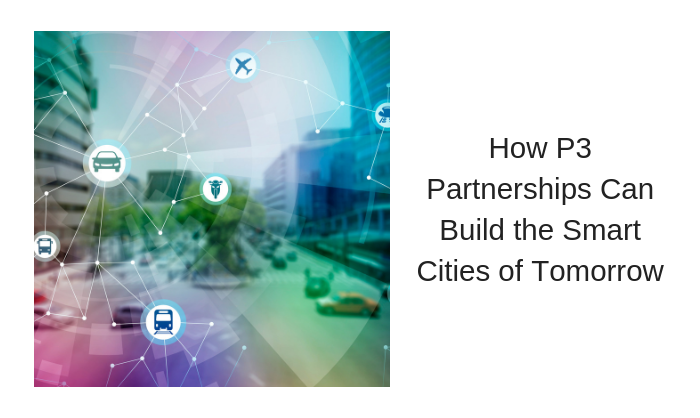
A few months ago, we wrote about how Public-Private Partnerships (P3) are the key to success for cities investing in smart initiatives. The phrase smart initiative refers to implementing the concept widely known as the Internet of Things (IoT). The IoT integrates countless network-connected physical devices with Information and Communication Technology (ICT) to improve the efficiency of city operations. Such initiatives require huge capital investments, and contractual arrangements between the private and public sectors such as P3 help stakeholders share both risks and rewards.
P3 agreements are created to complete a specified project that benefits the public in a way that provides a win-win for both parties. Government has a need to provide a product or service to enrich the lives of its citizens, while private companies have the expertise and experience to provide this product or service in the most cost-effective manner. Conversely, private companies want new markets for their products or services and often need government approval, land, or facilities to access them. A successful partnership meets the needs of both entities and leverages the best that each has to offer.
Government agencies are groups of elected or appointed leaders and government employees, not service providers. For example, health department officials do not directly run hospitals or treat patients. Housing officials do not hammer nails into wood frames or hang drywall. Complicated construction projects require experts in various fields that government typically does not have, and advancements in technologies only increase the complexity – but also expand the possibilities. P3 agreements can be invaluable for creating the smart communities of tomorrow, ensuring governments have the best possible options that will last far into the future.
Remember when mobile phones were invented? They were huge, heavy, expensive, and could only make phone calls. Now, your cellphone can control your television, turn the air conditioning or lights on/off in your home, let you see who’s at your door remotely and sound an alarm if you suspect suspicious activity, and take photos or videos with higher resolution than any digital camera from 10 years ago. People can check their emails, trade stocks, book hotel reservations, call for a driver, and even reserve a parking space close to their destination. The possibilities for facility/city planning are growing every day, but government officials need the right experts to create a scalable, flexible IoT architecture that will support future advancements that haven’t even been conceived yet. Already, we are seeing driverless cars and roadway infrastructure is being designed to control traffic flow and keep automobiles a safe distance from each other.
OST is ready to partner with state and local governments on any future P3 initiatives, leveraging advancements such as IoT, Artificial Intelligence, Big Data, Cloud computing, and other emerging interconnected technologies. Moreover, we have third-party investors who can help mitigate financial challenges in delivering a proven, reliable and transformational solution. The Smart Cities experts at OST can help feasibility studies and strategic recommendations become integrated engineering, telecommunication, and project management realities, transforming a metropolitan city into a “Smart City.” To learn more, visit our services page: https://ostglobal.com/what-we-do/smart-infrastructure/
About OST: OST, Inc. is a leader in implementing Smart City projects and a provider of C4ISR, Cyber, Engineering, Logistics, Managed Services, and Smart technologies. OST serves multiple industries, including aviation, defense, financial, health, insurance, utility, and transportation. Its client base consists of Fortune 1,000 companies and public sector organizations such as the US Department of Defense (Air Force, Army, Navy, and Joint programs), Commerce, Education, Energy, Homeland Security, Housing and Urban Development, Transportation, Treasury, and Veteran’s Affairs, plus state and local governments. OST is externally appraised/registered as CMMI-DEV Level 3, CMMI-SVCS Level 3, ISO 9001, ISO 10002, ISO 20000, and ISO 27001.